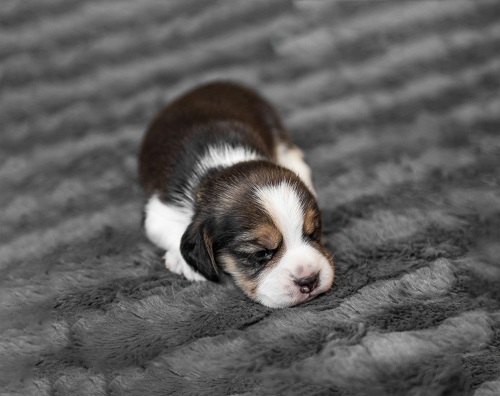Puppies are cute, cuddly, and full of energy. However, they can also be demanding and require time and patience. From potty training to chew toy destruction, the first few months with a new puppy can be challenging. But when do puppies get easier?
When Do Puppies Get Easier?
Taking care of a puppy usually becomes easier around 4-5 months of age, as this is when they tend to be fully potty-trained, capable of sustained focus and have adapted to their new surroundings.
Factors that Affect the Difficulty Level of Raising a Puppy
- Breed: Your puppy’s breed can significantly impact their behavior and the difficulty of raising them. Some breeds are known for their high energy levels and require a lot of exercise, while others are more laid back and require less stimulation.
- Socialization: Your puppy’s socialization can also affect its behavior and ease of training. Puppies exposed to various people, places, and experiences are less likely to develop behavioral issues and are easier to train.
- Training: Consistent training is essential in shaping your puppy’s behavior and making them easier to live with. Teaching basic commands, such as sit, stay, and come, reduces their tendency to chew, bark excessively, and display other destructive behaviors.
When Do Puppies Get Easier?
- Physical Maturity: As your puppy grows and reaches physical maturity, it will become more relaxed and easier to manage. Most breeds will reach full physical maturity by the age of two.
- Behavioral Maturity: Behavioral maturity varies depending on the breed, but most dogs will reach this stage between the ages of 1 and 2. Once your puppy has reached behavioral maturity, it will be more responsive to training, less destructive, and easier to manage.
- Potty Training: Potty training is one of the biggest challenges when raising a puppy, but once your puppy has learned where to go to the bathroom, life will become much easier. Potty training can take several months, but with consistency and patience, you will fully train most puppies by 6-9 months.
When Do Puppies Get Easier to Take Care Of?
Puppies typically become easier to take care of as they reach physical and behavioral maturity, usually between 1 and 2 years of age. Consistent training and socialization also play a role in making a puppy easier to handle. However, the exact timeline can vary depending on breed, individual temperament, and the amount of care and attention they receive.

At What Age Do Puppies Get Easier
Puppies typically become easier to handle as they reach physical and behavioral maturity, usually around 1 to 2 years of age. This can vary slightly depending on breed and individual temperament. Consistent training and socialization also play a role in making a puppy easier to manage.
Conclusion
In conclusion, puppies can be challenging to raise, but the difficulty level will decrease as they reach physical and behavioral maturity. Consistent training and socialization are also important factors in making your puppy easier to manage. While there is no one answer to the question of when puppies get easier, most dogs will become more relaxed and easier to manage by 1-2 years old.
FAQs
Breed, socialization, and training are the main factors that affect the difficulty of raising a puppy. Certain breeds may require more exercise and stimulation, while proper socialization and consistent training can help shape your puppy’s behavior and make them easier to manage.
Puppies typically become easier to handle as they reach physical and behavioral maturity, usually between 1 and 2 years of age. However, this timeline can vary slightly depending on breed and individual temperament.
Socialization and training are crucial in shaping a puppy’s behavior and making them easier to manage. Proper socialization exposes them to various people, places, and experiences, reducing the risk of behavioral issues. Consistent training can also help establish basic commands and reduce destructive behaviors.
